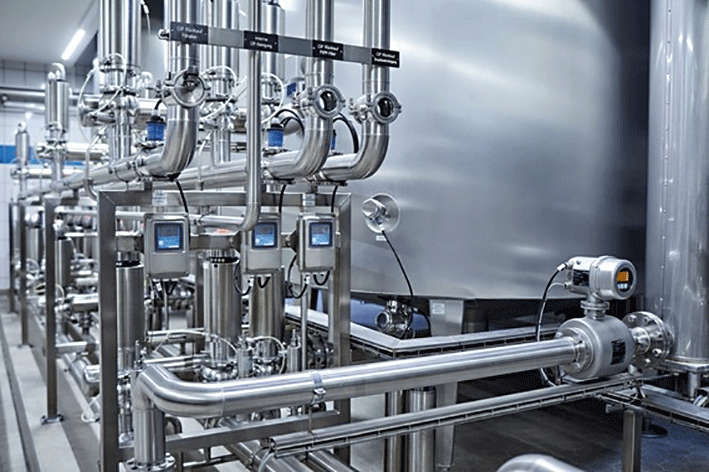
Many food and beverage manufacturers encounter challenges with clean-in-place (CIP) processes that take too long. Additionally, some operations need to reduce costs related to detergents, energy and water usage. Have you considered exploring potential solutions to address these issues?
Endress+Hauser has many years of experience in CIP optimisation, having been involved in multiple projects that helped customers to reduce their operational costs, while achieving their sustainability and resource conservation goals. In some cases, these initiatives resulted in increased production throughput. In addition the company has the expertise to troubleshoot microbiological issues on the plant or in surrounding soil. It fully understands the importance of CIP optimisation, without compromising product quality.

Understanding the challenges
As raw material and energy costs continue to rise, it becomes even more crucial to exploit the assets of the food industry. Some food processing companies use CIP systems with very little automation, using a purely timed-based process or manual operation. Although the dosage of detergents is sometimes controlled with conductivity, the rinses are often either time- or volume–based. Implementing conductivity-based rinses can help avoid the drawbacks associated with excessively long or inadequate rinse cycles.
If rinse cycles are too long, it leads to unnecessary consumption of water, cleaning chemicals and energy. It also means more time is spent on cleaning, which extends the downtime of equipment and reduces production throughput. This increases operational costs and reduces overall efficiency.
On the other hand, insufficient rinse times may leave behind residues, contaminants and cleaning agents on the surfaces. This carryover of unwanted substances can compromise product quality and safety. Further to this, buildup of residue may become more challenging to remove, which requires additional CIP processing.
Measure to master
The installation of inline instruments provides real-time monitoring and control of critical process points, leading to reduced cleaning time, energy and detergent consumption, while providing full traceability without interrupting production. The CIP process can be optimised in different ways. It all depends on the level of automation and the size of the existing system. Sometimes small adjustments can lead to substantial savings in operating costs.
It is also important to measure critical control parameters like temperature and flow velocity to ensure effective cleaning and sanitation. Inefficient cleaning results in soil buildup, which could lead to the proliferation of microorganisms, and ultimately develop into biofilm.
Inline optical instruments
One of the major current trends is to use inline optical instruments to measure the soil load of the return run and actively manage the CIP process. Depending on the degree of soil load, the liquids suitable for re-use for the next cleaning cycle can be directed to a storage tank, while highly contaminated liquids are automatically sent for waste¬water treatment. Their rapid reaction time (faster than conductivity <1 second) supports effective phase separation, and could potentially reduce water and chemical consumption.
Concentration measurement
To ensure optimal performance of CIP processes, the detergent concentration must be monitored during cleaning on the return line, as well as in the make-up tank. This can be done with conductivity measurements, which require the least amount of maintenance and calibration and use less energy, chemicals and water. Endress+Hauser offers multiple conductivity sensor/transmitter options designed specifically for CIP applications.
Investing in efficiency
The CIP system can be automated at every level desired – from basic installations with low capital expenditure to hygienic high-end systems that ensure the shortest possible process downtime through fast, efficient cleaning. By optimising water, energy and cleaning detergents, the system ensures a return on investment at all times.
Endress+Hauser understands the challenge of increased production demands and the drive for operational savings. They can assist you with online instruments that provide real-time monitoring and control of your CIP process, while providing full traceability.
| Tel: | +27 11 262 8000 |
| Email: | [email protected] |
| www: | www.endress.com |
| Articles: | More information and articles about Endress+Hauser South Africa |

© Technews Publishing (Pty) Ltd | All Rights Reserved